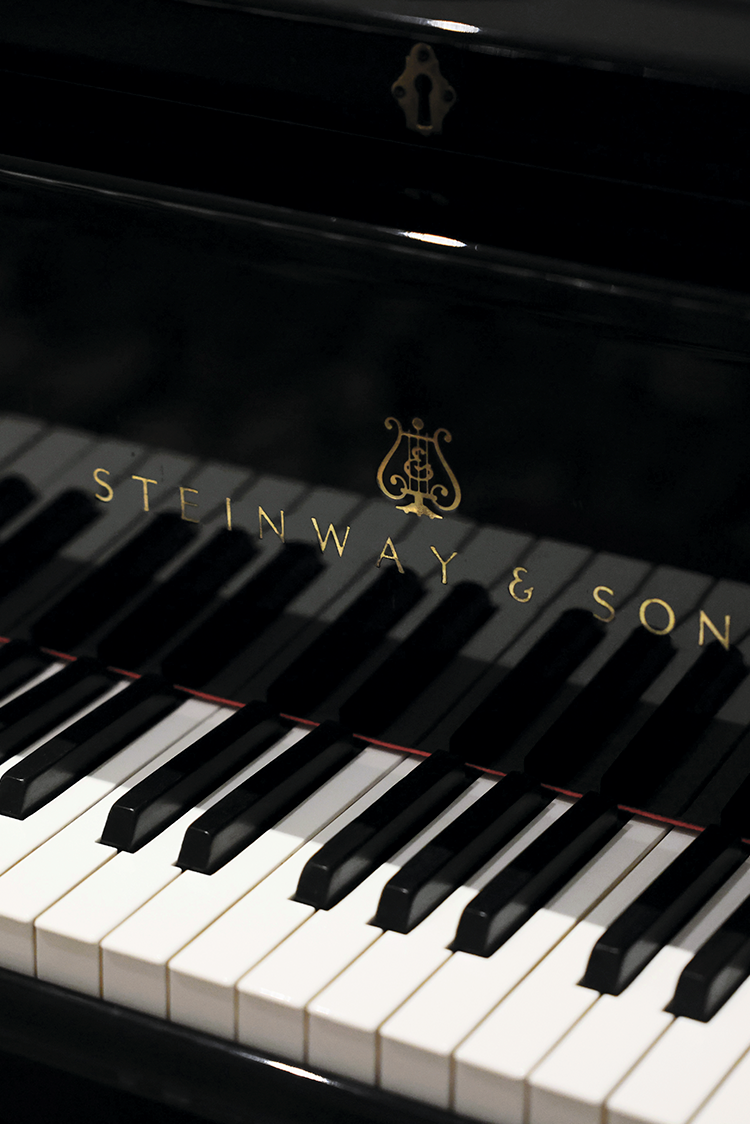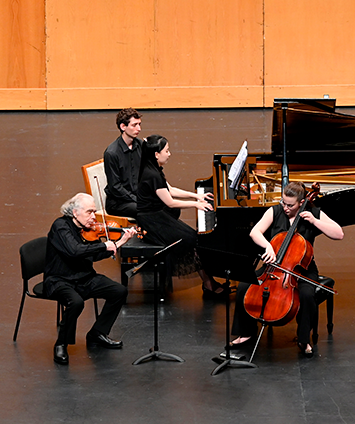
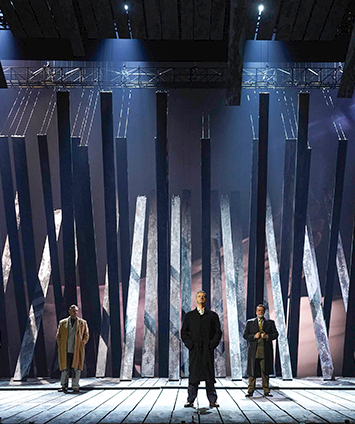
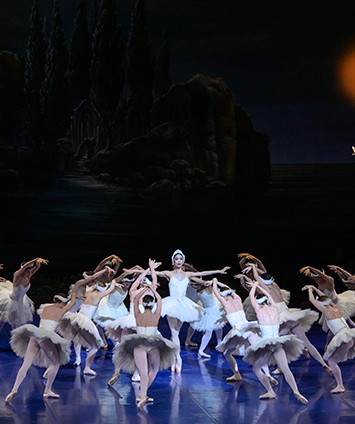

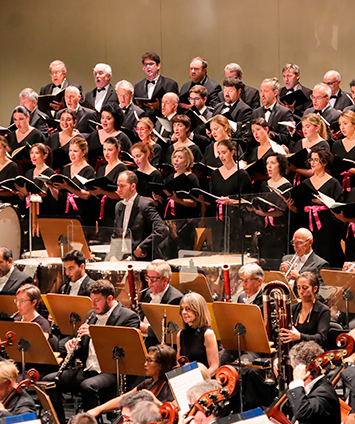
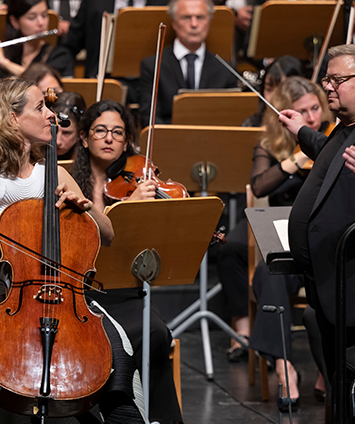
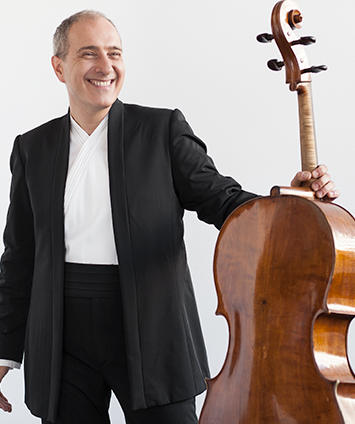

Fundación Albéniz
Fundación Albéniz is an institution dedicated to promoting and teaching music via the Escuela Superior de Música Reina Sofía. Fundación Banco Santander sponsors several of its programmes.
The chair consists of two teaching units, led by Milana Chernyavska and Stanislav Ioudenitch. The advanced piano studies they offer have allowed students to perfect their skill on this instrument and advance their professional careers by performing at several concerts throughout the school year.
This channel offers free public access to the audiovisual archives of the Escuela Superior de Música Reina Sofía, consisting of student concerts and master classes in different instruments taught by international artists.
The school’s orchestras play at the concerts that Fundación Banco Santander organises for group employees and their families. A total of four concerts were offered in 2024, attended by 1,683 people.
These concerts are part of an educational programme for primary and secondary pupils from schools in the region of Madrid. The programme also includes immersive virtual reality activities that allow children to discover the various instruments that make up an orchestra and the works of great composers.
Every year, this event brings young students and renowned masters together to learn, rehearse and perform at various cultural venues across Cantabria. Fundación Banco Santander sponsored the chamber music concert and closing concert, held at the Cantabria Palace of Festivals on 19 and 26 July, respectively.

Teatro Real
The foundation is one of the principal patrons of the artistic season and cultural initiatives of Madrid’s Teatro Real. Its extensive programme includes operas, concerts, recitals and dance productions, plus a variety of cultural activities (seminars, workshops, lectures, film screenings, etc.) in connection with some of these shows.
In 2024, Fundación Banco Santander sponsored the premiere in Spain of Lear, an opera inspired by the famous Shakespearean tragedy, with music by Aribert Reimann and libretto by Claus Henneberg. Asher Fisch conducted the Choir and Orchestra of the Teatro Real, and Calixto Bieito was the stage director. Six performances were given between 26 January and 7 February.
The theatre also organised two complementary activities: an encounter with the lead singers on 25 January in the Teatro Real's Gayarre Hall, and a conversation between the composer Jorge Fernández Guerra and the musicologist Luis Gago about Riemann’s work on 1 February at the Residencia de Estudiantes.

Gran Teatre del Liceu
Over the course of 2024, Fundación Banco Santander sponsored six performances scheduled for the Gran Teatre del Liceu’s artistic season.
On 5 May, the Orquestra Simfònica of the Gran Teatre del Liceu, conducted by Josep Pons, played Mahler’s Symphony No. 5.
On 26 and 27, the theatre presented a concert version of Beethoven’s opera Fidelio, with an innovative semi-staged production for deaf and hearing audiences.
From 19 to 23 July, the Balletto del Teatro dell'Opera di Roma performed Tchaikovsky's Swan Lake.
On 18 and 19 October, the Liceu screened Oh To Believe in Another World, an animated film created by visual artist William Kentridge for Shostakovich’s Symphony No. 10.
On 24 and 27 October, the soprano Sondra Radvanovksy and the tenor Piotr Beczala gave two concerts to mark the centenary of Puccini’s death.
Finally, on 18 December, Marc Minkowski conducted a concert version of the operetta Die Fledermaus by Johann Strauss.
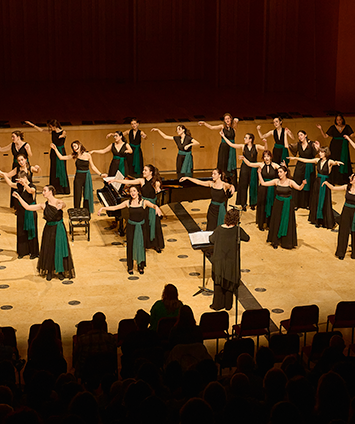
Orfeó Català Choir School
The patronage of Fundación Banco Santander drives this educational, artistic and social project that provides musical training to more than two hundred children and young people between the ages of six and twenty-five.
The Escola consists of five choral ensembles—Cor Petits, Cor Mitjans, Cor Infantil, Cor de Noies and Cor Jove—which will supply the future singers of the Orfeó Català.
Their members acquire the technical knowledge needed to eventually join a professional adult choir under the guidance of the Escola’s artistic staff, consisting of pianists, conductors, voice teachers, music theory instructors, and guest educators who give master classes.
Along with other groups, the choirs perform in several annual concerts at the Palau de la Música and the Petit Palau and participate in major music events, singing iconic pieces from the universal choral repertoire. They also support various social and humanitarian causes by taking part in charity concerts at hospitals, care homes, etc.

Orfeón Donostiarra
Fundación Banco Santander is a Friend of Honour of the Orfeón Donostiarra, an amateur choral ensemble founded in 1897.
Although it is composed of non-professional singers, being in this choir is a full-time commitment. It gives approximately forty concerts each year, sharing the stage with internationally renowned orchestras, maestros and soloists, and regularly participates in the most important music festivals in Spain and Europe (San Sebastián Musical Fortnight, Santander International Festival, Ruhrtriennale, the Salzburg and Rhine festivals, etc.).
The choir’s repertoire includes a large number of symphonic choral works, operas, zarzuelas, folk songs and polyphonic music.
In the course of its long musical history, the ensemble has earned numerous distinctions, such as the Fundación Excelentia Award, Opera Award from Fundación Teatro Campoamor, and the Gold Medal for the Centenary of the Orquesta Sinfónica de Madrid.

Santander International Festival
During the month of August, this festival brings the finest soloists and orchestras on the international music scene to perform in Santander and different historic venues across Cantabria.
Fundación Banco Santander sponsored the closing concert, held on 31 August at Argenta Hall in the Cantabria Palace of Festivals. The Orchestre Philharmonique de Radio France and the cellist Sol Gabetta, conducted by Mikko Franck, performed Debussy’s Prelude to the Afternoon of a Faun; Lalo’s Cello Concerto in D Minor; Ravel’s Schéhérazade, Ouverture de féérie, M. 41; and the suite from Stravinsky's The Firebird.

Francesco Ruggieri Cello
The foundation extended the loan of a seventeenth-century cello from its collection to the renowned musician Asier Polo.
The instrument was crafted in about 1689 by Francesco Ruggieri, a luthier of the Cremona school, known for his consummate skill at creating string instruments. In addition to its beauty and the quality of its materials, the cello has two qualities that make it even more valuable. Firstly, it predates the modern cello, whose proportions were established by Stradivari in the year 1700; and secondly, the Catholic Church commissioned it to be played in processions. There is a hole in the bottom, now covered up, for a strap that would have passed round the cellist’s neck, allowing it to be played during these types of liturgical ceremonies.
Music critics regard Asier Polo as one of the finest musicians of his generation. In 2019, he received the National Music Prize from the Spanish Ministry of Culture in recognition of his stellar career as an artist and his significant educational work. He currently teaches at the University School of Music of the Conservatorio della Svizzera Italiana in Lugano, Switzerland.

